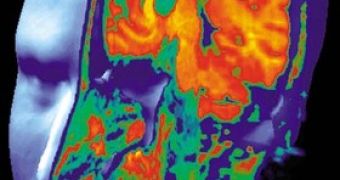The part of the human brain that kicks in the "auto-pilot" when people go to and come from work or when they perform repetitive tasks was thoroughly analyzed by a Yale researcher. As reasons why he started the survey he named the fact that he always forgot to take the laundry out, even if he passed right by the shop on his way to work. Understanding how the brain works in such circumstances and why we can't remember things even if they stare us in the face was the main stake of this new study.
Routine could be one of the possible explanations. When we perform the same repeated tasks everyday, the brain gets used to them and keeps the conscious mind to a minimum, to avoid depression and other such conditions. Higher brain functions are solicited only when something unexpected happens, such as a delay or an accident in a commuter train. Otherwise, regular passengers will have little to no recollection of their trip to their work place.
This is especially true if you ask a regular commuter to point out the specific events of a day in the distant past. Most likely, he or she will not be able to tell which event happened which day. This happens because a portion of the brain, called the striatum, records and stores landmarks and other cues. If these elements are observed during a commute, for instance, no other brain functions are triggered. If some of them are missing or are different, then a response is generated and the person becomes aware that something has changed.
On the other hand, the hippocampus, a portion of the brain involved in a process called spatial learning, kicks in when a person is in an unfamiliar environment. The correlations that occur between the two sections of the brain are crucial to avoid confusion or repetitive behavior. Also, when both are functioning at the same time, the incidence of people forgetting things decreases exponentially. This was shown scientifically when Yale scientist Christopher J. Pittenger, M.D, experimented on idle lab mice.
When one of the two areas in their brain associated with memory was tampered with, the mice exhibited symptoms of confusion and lack of spatial orientation, respectively. The scientists working with Pittenger concluded that the connection between the striatum and the hippocampus must be enabled at all times if the mice were to have any chance of recognizing and dealing with new situations.
The researchers believe that their discovery also applies to humans, especially to those with severe obsessive-compulsive behaviors or those who are addicted to drugs or medication. The Yale team, which published the results of its finds in the Proceedings of the National Academy of Sciences, says that analyzing and understanding the way the two portions of the brain interact in mental illnesses or in drug dependencies could give doctors a better way of knowing exactly which therapies to prescribe, or, if necessary, what new therapies to invent.

 14 DAY TRIAL //
14 DAY TRIAL //